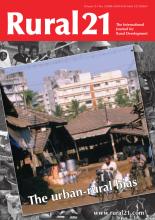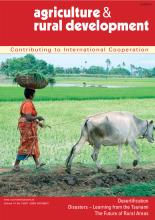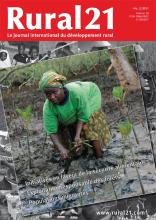/ library resources
Showing items 1 through 9 of 12.Contains introduction; the goals and objectives of land policy; land sovereignty; land tenure classification; incidents of tenure; historical claims; tenure of land-based resources; productive and sustainable land use; the management and development of land; land rights delivery; demarcation and
Includes the sustainable livelihoods framework, critical tenure-related livelihood questions, tenure insecurity in Amhara Region of Ethiopia and in Southern Africa, a country-by-country assessment, and discussion of what can be learned to illuminate post-transition land tenure reform.
ELD is a joint initiative of Germany, the European Commission and the United Nations Convention to Combat Desertification (UNCCD). ELD offers a strong platform for raising public awareness of land degradation and advocating sustainable land-use strategies.
Soils around the world are degrading rapidly, reducing ecosystem diversity and some important functions, threatening food and other human securities, and increasing vulnerability to climate change. This is a vicious cycle created by and leading to further unsustainable land-use practices.
Soil carbon is important for soil structure and related nutrient and water holding properties. Increasing soil carbon stocks results in improved crop growth and contributes to enhanced climate resilience.
Burkina Faso is already using all its possible farmland. In future the only way to feed the rapidly growing population will be by increasing yields on existing land. Building stone contour lines enables rainwater to be better used and slows erosion.
There is growing degradation in sylvo-pastoral lands that were originally under common property regimes, but over which the state now asserts ownership.
Rural areas are not exempted from the impacts of globalisation. Global trends affecting agriculture are particularly significant in this respect. A number of options are available to developing countries in responding to these trends.
Le Partenariat pour les Forêts du Bassin du Congo vise à concilier la protection des écosystèmes forestiers et leur utilisation pour le développement des pays d’Afrique centrale. Cet article présente ce qu’un «réseau stratégique» de ce type peut donner comme résultats, ainsi que ses limites.
Pagination
Land Library Search
Through our robust search engine, you can search for any item of the over 73,000 highly curated resources in the Land Library.
If you would like to find an overview of what is possible, feel free to peruse the Search Guide.






